What America's betrayals of Kurdistan and Yemen have in common
For Trump's Middle-East policy, it always comes back to the same thing

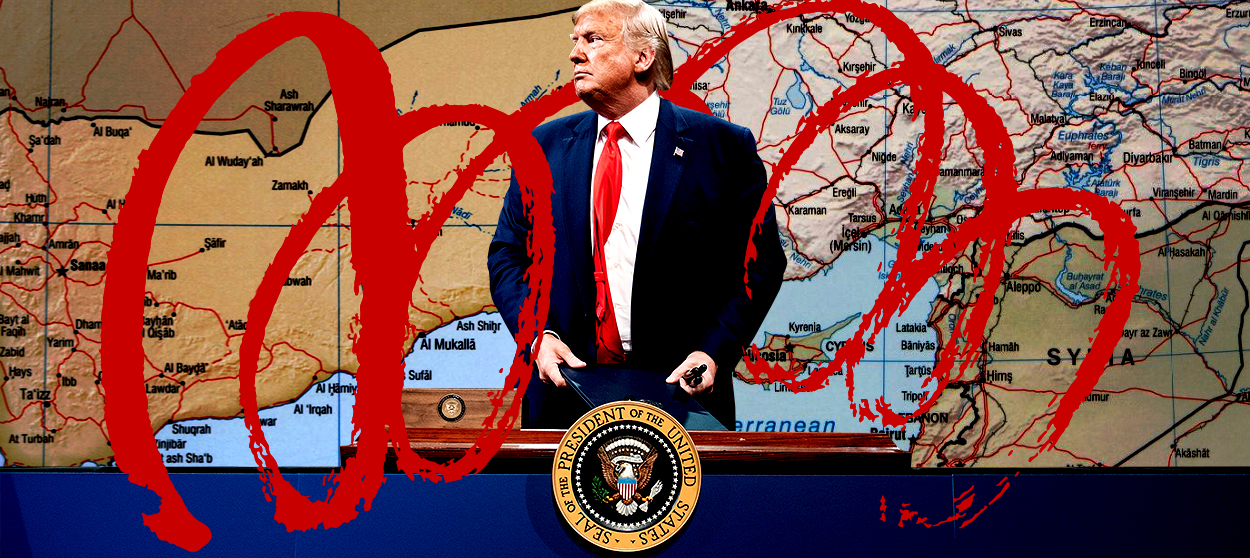
A free daily email with the biggest news stories of the day – and the best features from TheWeek.com
You are now subscribed
Your newsletter sign-up was successful
Donald Trump has finally done something that genuinely upsets very nearly everyone. In green-lighting a Turkish incursion into northern Syria against the Kurds, our staunchest in-region allies against the Islamic State, the president has prompted a chorus of outrage not only from the usual quarters but from evangelical leaders, our own front-line troops, and normally-supportive Republican senators.
The outrage is understandable, but the decision was entirely predictable and in keeping with the president's avowed instincts. Trump has been complaining about wanting to leave Syria for months. He has no history of loyalty to those he does business with, and no sympathy for the underdog in a fight. His acquiescence to Turkey's interests mirrors perfectly his support for the Saudi intervention in Yemen: in both cases, he sided with the dominant regional power seeking to crush a popular ethnic uprising in a neighboring country that they feared could spill over into their territory.
The comparison may seem odd on the surface. The Kurds have been a valued American client for years while the Houthis are regularly dismissed as Iranian proxies. Moreover, America has actively supported the Saudi war, while we are only getting out of the way of the Turkish military. But the Saudis have driven the Houthis far more completely into Iranian arms than they had been prior to the decimation of their country, and America's initial support for the Yemen war was far less enthusiastic than it ultimately became under Trump. We will see what happens in Syrian Kurdistan, but our abandonment will logically lead the Kurds to seek regional patrons who might provide more reliable support, based on a genuine mutual interest. The most likely such patron: Iran.
The Week
Escape your echo chamber. Get the facts behind the news, plus analysis from multiple perspectives.

Sign up for The Week's Free Newsletters
From our morning news briefing to a weekly Good News Newsletter, get the best of The Week delivered directly to your inbox.
From our morning news briefing to a weekly Good News Newsletter, get the best of The Week delivered directly to your inbox.
America's continued efforts to contain or even overthrow the Iranian regime forms the crucial backdrop to our presence in Syria in the first place. Prior to the emergence of the Islamic State, America was half-heartedly engaged in a proxy war to overthrow the Syrian government in favor of a collection of opposition groups, many of them with Sunni Islamist connections. That effort, in turn, was at least as much about toppling an Iranian ally as about promoting a mythical Syrian democracy. ISIS, though, was deemed so dangerous that we were not willing to allow it time to consolidate power; our previous priority of replacing the Assad regime was subordinated to the need to destroy the new menace.
Subordinated — but not abandoned. The United States settled on the Kurds as our best allies in the fight against the Islamic State partly because they were by far the best-disciplined and most-committed fighters — contrary to continued fantasizing by intervention advocates, there were no other plausible proxies available — but also because they were a genuinely independent force in the conflict. Victory for the Kurds would not mean victory for Assad — or for Assad's Iranian patron.
Siding with the Kurds, though, meant antagonizing Turkey, which has been fighting an insurgency by the Kurdish Workers' Party (PKK) on and off for decades. As a consequence, even after the fight against ISIS was largely won, American troops needed to remain in the area, both to deter the Turks from intervening to crush the Kurds and to deter Iran from engaging in its own meddling.
By its nature, there was no natural end-game to this deployment. The Kurds have a better claim than most to a state of their own: They are a distinct ethnic group that has been brutally oppressed by the various states in which they live, and they have a strong sense of identity and a martial spirit that would serve them well in defending any country that they won. But they are not capable of winning a country of their own on their own. They were a match for the Islamic State, but not for a regional powers like Turkey. In the absence of any regional patron, they needed a defender from outside the region willing to stand against all sides: the U.S.
A free daily email with the biggest news stories of the day – and the best features from TheWeek.com
Playing that role appeals to Americans' romantic natures. But romance is not a stable basis for a long-term relationship, and the negative consequences of underwriting Kurdish ambitions are potentially substantial. And America has betrayed long-suffering allies before when supporting them was no longer in our interests. Consider the Poles: After all they had suffered during World War II, they hardly deserved to have Stalin seize half their territory and to have their own government subordinated to effective Soviet control. But the United States was not going to follow up one world war with another, not even to secure the independence of the country whose defense prompted the global conflagration in the first place.
Today's Washington remains remarkably eager for another war, and both our support for and our abandonment of the Kurds have been decisively shaped by that dynamic. While President Trump has so far proven more gun-shy than many of his party's leaders would prefer, if there is any strategic rationale whatsoever for his support for Saudi Arabia's war in Yemen and for Turkey's incursion into Syria, it is that both allies are regional rivals of Iran. Unfortunately, as with Saudi Arabia's catastrophic Yemen war, the Turkish war in Kurdistan is likely to push its victims into Iranian arms, and inflame its domestic insurgency to boot.
A cleverer administration would use this very prospect to caution Ankara, and perhaps even find space for Kurdish autonomy in a delicate balance between Turkish and Iranian interests. But that would require accepting Iran's place as a major regional actor with legitimate interests to be balanced. So long as we are determined to make hostility to Iran the center of our foreign policy for the region, we will be readily manipulated by regional powers into supporting their most brutal efforts at suppression — or we will have to keep putting our own troops in harm's way, and never leave.
Want more essential commentary and analysis like this delivered straight to your inbox? Sign up for The Week's "Today's best articles" newsletter here.
Noah Millman is a screenwriter and filmmaker, a political columnist and a critic. From 2012 through 2017 he was a senior editor and featured blogger at The American Conservative. His work has also appeared in The New York Times Book Review, Politico, USA Today, The New Republic, The Weekly Standard, Foreign Policy, Modern Age, First Things, and the Jewish Review of Books, among other publications. Noah lives in Brooklyn with his wife and son.
-
 Nuuk becomes ground zero for Greenland’s diplomatic straits
Nuuk becomes ground zero for Greenland’s diplomatic straitsIN THE SPOTLIGHT A flurry of new consular activity in the remote Danish protectorate shows how important Greenland has become to Europeans’ anxiety about American imperialism
-
 ‘This is something that happens all too often’
‘This is something that happens all too often’Instant Opinion Opinion, comment and editorials of the day
-
 House votes to end Trump’s Canada tariffs
House votes to end Trump’s Canada tariffsSpeed Read Six Republicans joined with Democrats to repeal the president’s tariffs
-
 ‘The mark’s significance is psychological, if that’
‘The mark’s significance is psychological, if that’Instant Opinion Opinion, comment and editorials of the day
-
 ‘My donation felt like a rejection of the day’s politics’
‘My donation felt like a rejection of the day’s politics’Instant Opinion Opinion, comment and editorials of the day
-
 How Iran protest death tolls have been politicised
How Iran protest death tolls have been politicisedIn the Spotlight Regime blames killing of ‘several thousand’ people on foreign actors and uses videos of bodies as ‘psychological warfare’ to scare protesters
-
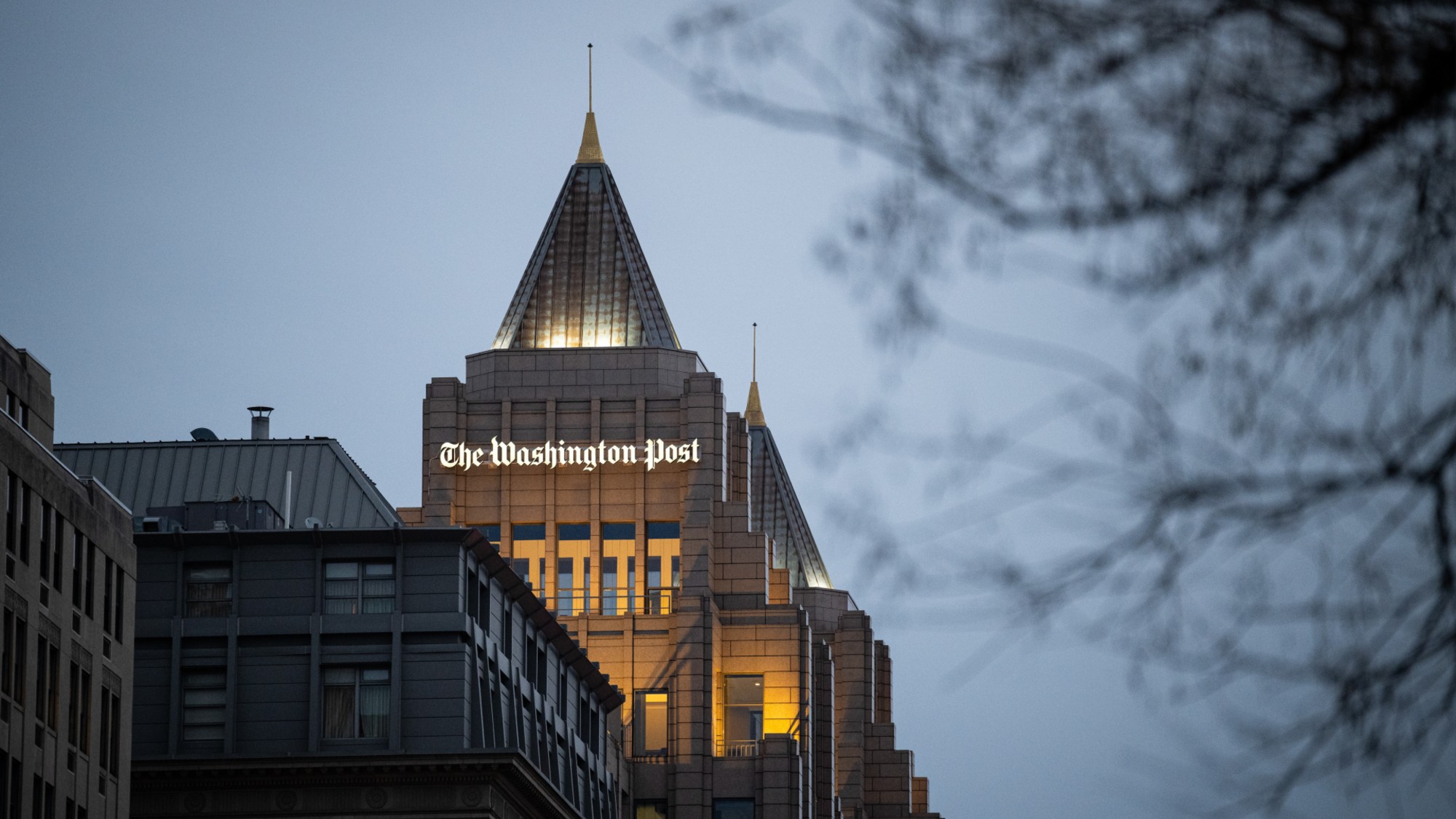 ‘It may portend something more ominous’
‘It may portend something more ominous’Instant Opinion Opinion, comment and editorials of the day
-
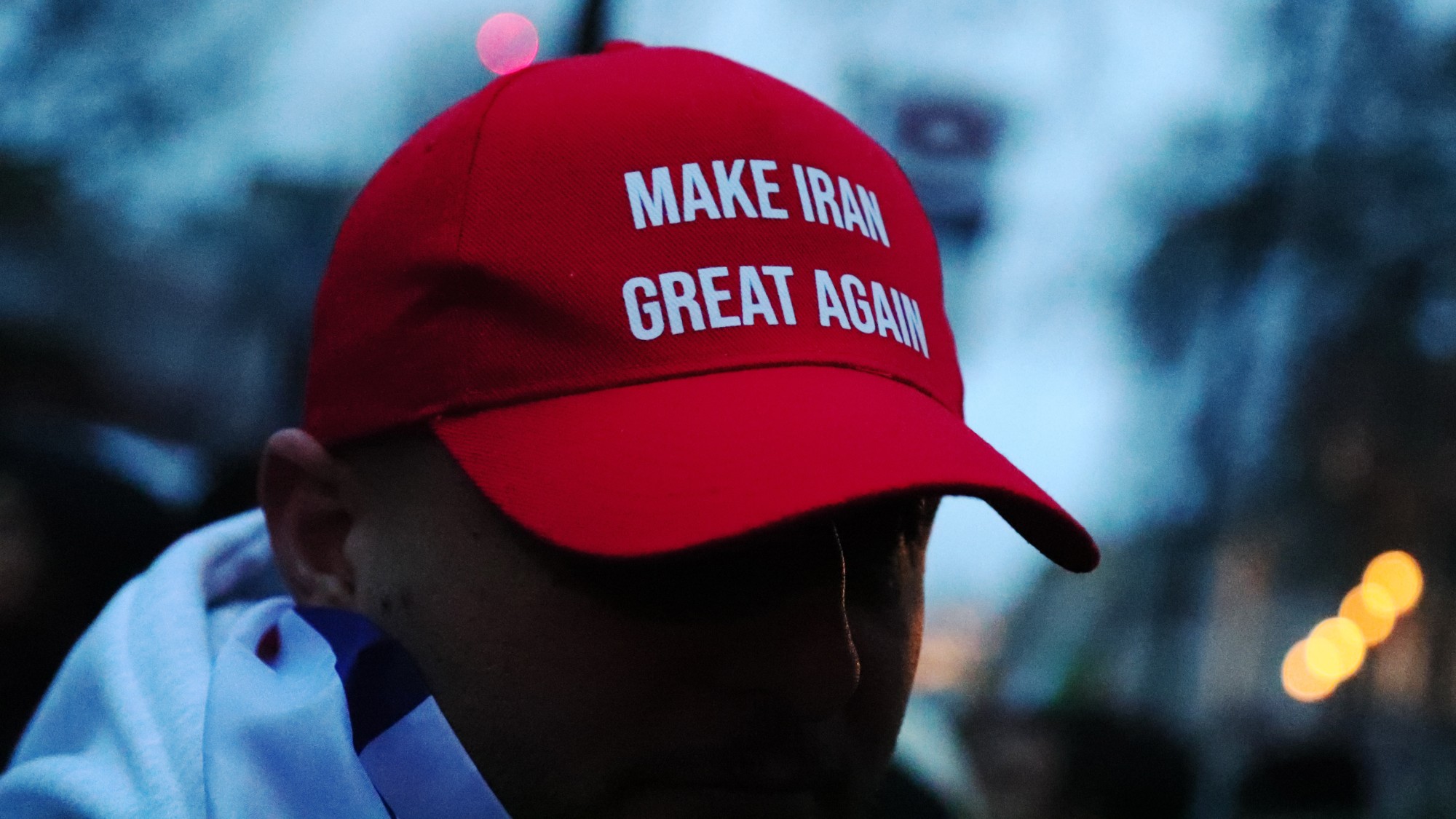 What are Donald Trump’s options in Iran?
What are Donald Trump’s options in Iran?Today's Big Question Military strikes? Regime overthrow? Cyberattacks? Sanctions? How can the US help Iranian protesters?
-
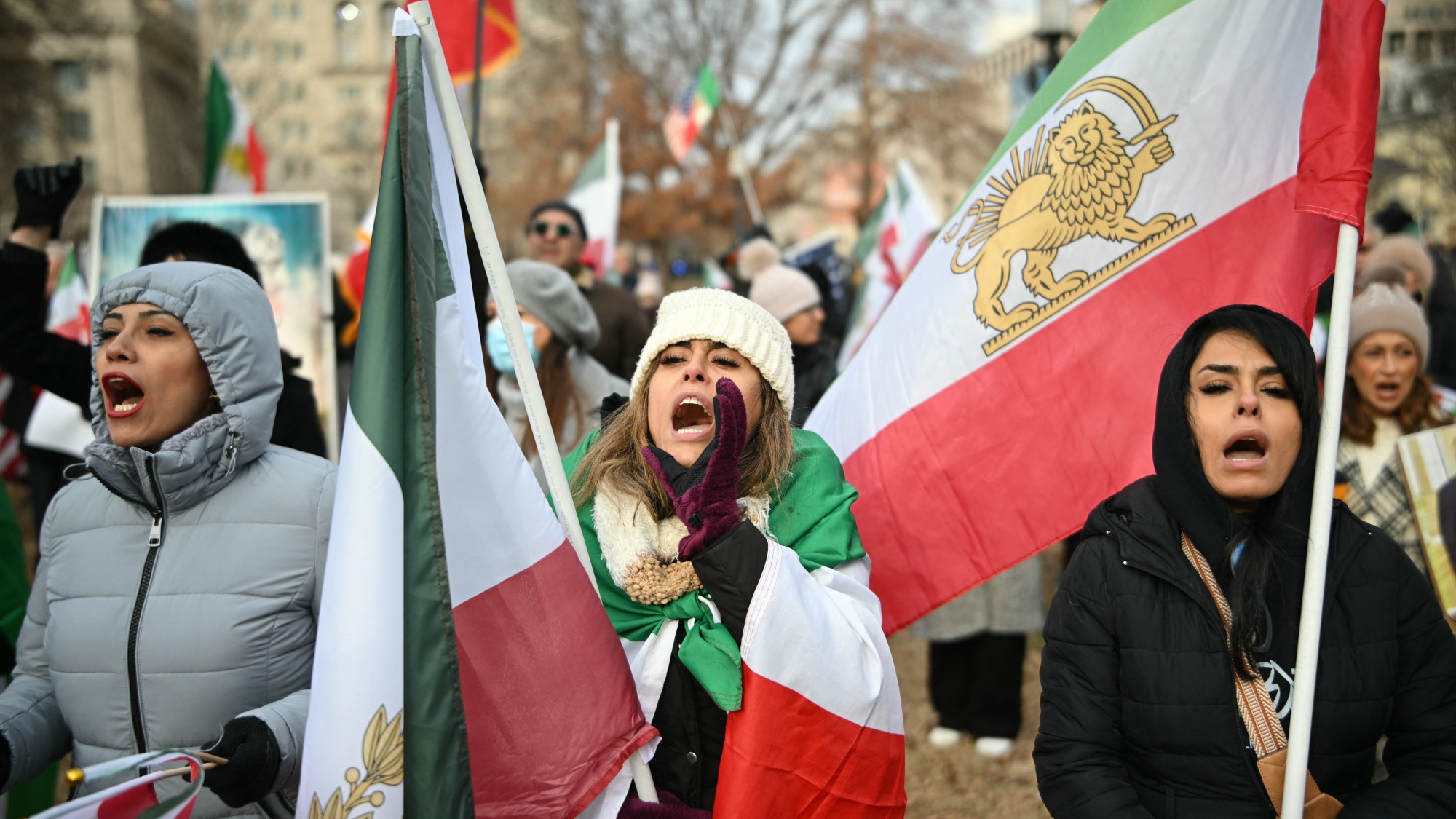 Unrest in Iran: how the latest protests spread like wildfire
Unrest in Iran: how the latest protests spread like wildfireIn the Spotlight Deep-rooted discontent at the country’s ‘entire regime’ and economic concerns have sparked widespread protest far beyond Tehran
-
 The billionaires’ wealth tax: a catastrophe for California?
The billionaires’ wealth tax: a catastrophe for California?Talking Point Peter Thiel and Larry Page preparing to change state residency
-
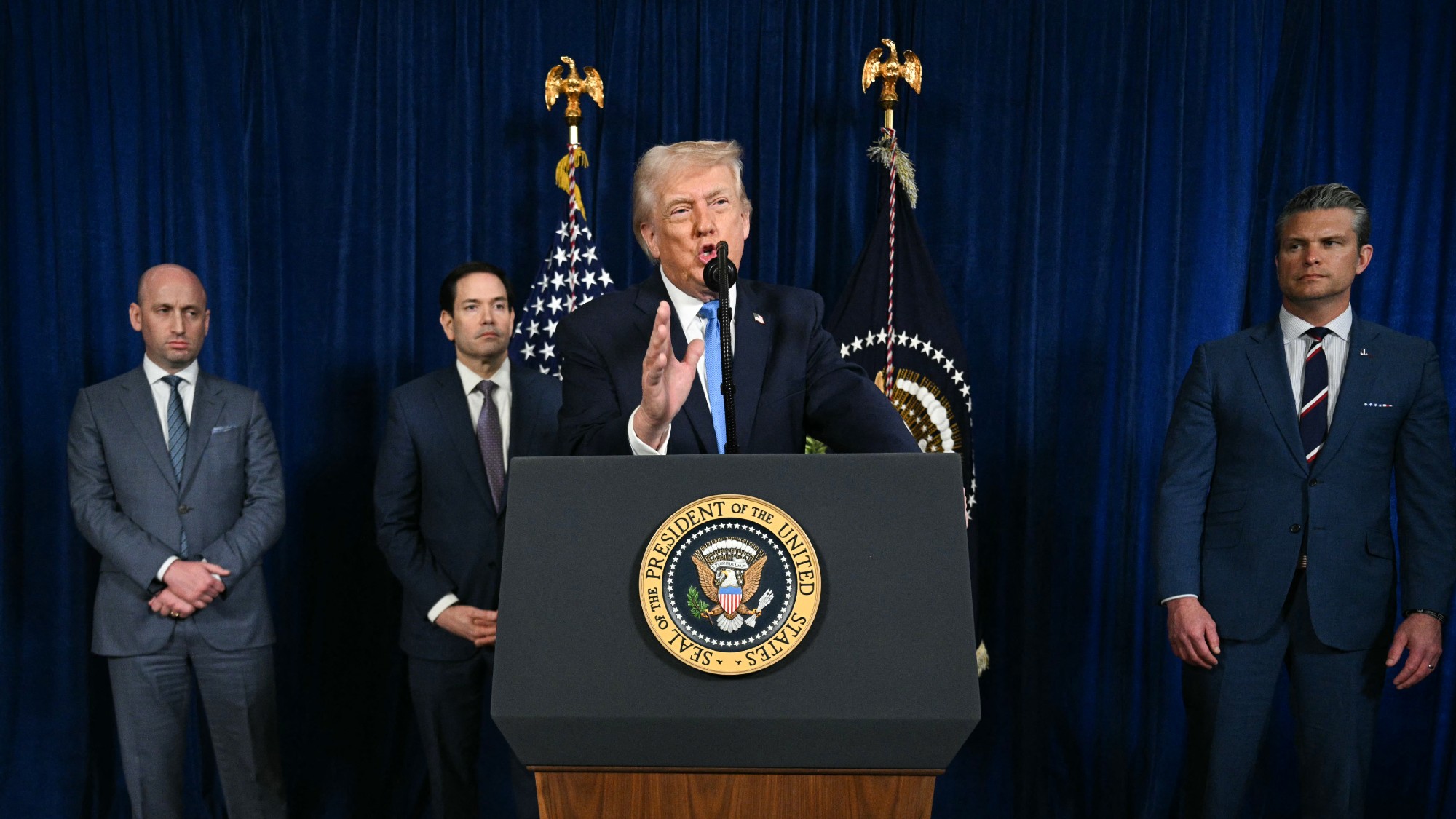 What is the Donroe Doctrine?
What is the Donroe Doctrine?The Explainer Donald Trump has taken a 19th century US foreign policy and turbocharged it
